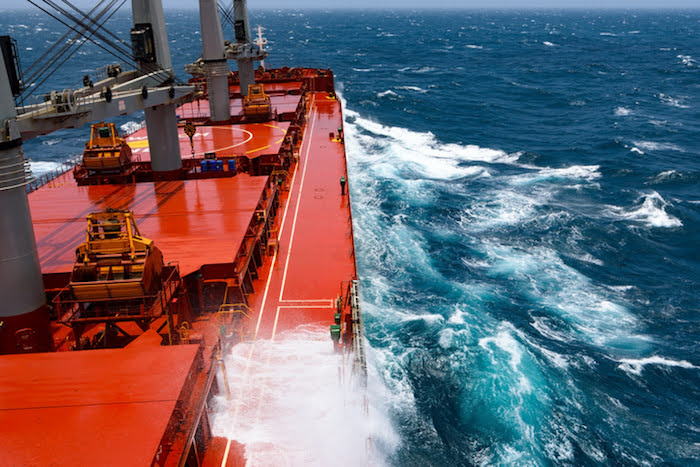COSCO Shipping Specialized Carriers Co, a unit of State-owned China COSCO Shipping Corp — based in Guangzhou, Guangdong province — will add more than 80 vessels with different functions into its fleet over the next two years, said a senior executive on Tuesday.
Driven by the upgrading and diversification of China’s foreign trade products, these new ships, including 24 car carriers with operational capacities between 7,000 and 8,600 units, 20 pulp carriers and a number of heavy lifting ships, will expand COSCO Shipping Specialized Carriers’ fleet capacity to over 10 million deadweight tons by 2026.This expansion will further bolster China’s ability to secure its supply chain.
The majority of the company’s new vessel orders have been placed with domestic shipbuilders, including Xiamen Shipbuilding Industry Co Ltd based in Fujian province and Jiangsu province-based Chengxi Shipyard (Yangzhou) Co Ltd.
Huang Nan, president of COSCO Shipping Specialized Carriers, said the company will closely follow the global trend of industrial and supply chain development, continuing to maintain capacity updates through multiple channels.
As one of the world’s largest specialized shipping operators by fleet size, the Chinese firm currently owns more than 140 vessels, including multipurpose and heavy lift vessels, semisubmersible vessels and asphalt carriers. Its fleet is capable of transporting oversized and overweight cargoes, including oil rigs, engineering and port machinery, locomotives, windmills, bridge cranes, and complete equipment to ports of call worldwide.
With China’s auto industry entering a new export era in 2023, COSCO Shipping Specialized Carriers transported 248,000 passenger vehicles for export last year, an increase of 228 percent year-on-year. Among these, 86,000 were new energy vehicles.
Huang said that China’s intensified efforts to develop new quality productive forces will generate significant market demand for innovative technologies, products and services, while also creating fresh investment prospects for exports and foreign investment.
New quality productive forces refer to advanced productivity freed from traditional economic growth modes and productivity development paths, and feature cutting-edge technology, high efficiency and high quality.
In the process of building a digitalized supply chain within the shipping industry, Huang said that new quality productive forces are being harnessed through innovative solutions such as artificial intelligence-driven intelligent stowage platforms, pioneering smart route products, digital supply chain platforms for the automotive industry and intelligent temperature monitoring systems for real-time cargo tracking.
These advancements are leading the way in enhancing operational efficiency, customer experience and environmental sustainability in the shipping sector, he added.
Noting that demand for shipping large-size products abroad by Chinese exporters and infrastructure project contractors will persist over the long run, Zhang Xiaotao, dean of the School of International Trade and Economics at Central University of Finance and Economics in Beijing, said that the current reshaping of global supply chains offers opportunities for Chinese manufacturers to match their capabilities with changing market needs.
Chinese businesses are showing robust competitiveness in areas such as electric vehicles, trains, construction machinery, wind turbines and photovoltaic products, leading to increased acceptance by many countries, said Zhang.
China’s foreign trade expanded 8.7 percent year-on-year to 6.61 trillion yuan ($914 billion) in the first two months, while the country’s exports of mechanical and electrical products amounted to 2.22 trillion yuan, an increase of 11.8 percent on a yearly basis, accounting for 59.1 percent of its total export value, said the General Administration of Customs.
Source: Hellenic Shipping News





